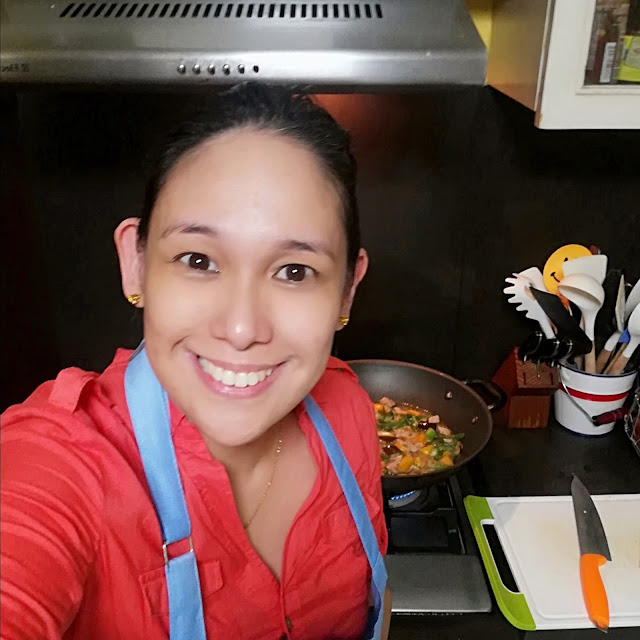 |
| My small business is writing! I enjoy being a writer and interviewing celebrities. |
Meanwhile, I also think aspiring entrepreneurs in the Philippines are facing a dynamic business environment that demands a solid understanding of financial principles. Don't just start a business without thinking of the financials! To maximize your chance of success in such a competitive environment, soon-to-be business owners like yourself need to develop sound financial skills.
A clear grasp of different financial processes and best practices empowers you to make well-informed investment decisions and confidently negotiate with clients and stakeholders. If you're thinking of starting your own small business or startup, here are seven essential financial skills you should hone to build a strong foundation for your ventures and increase your chances of long-term success and sustainability:
1. Debt Management
Understanding debt management is vital for an aspiring entrepreneur who may need to apply for a business loan to start their venture or support its growth. Developing this skill enables people to assess their borrowing needs, choose suitable financing options, and manage debt responsibly.
In a business context, effective debt management helps entrepreneurs avoid overleveraging, minimize interest expenses, and maintain a healthy credit profile. A startup company, for instance, might be presented with the option to apply for a business loan Philippines banks are making available to their commercial clients.
A startup or small business like yours may find a good fit in the Maya Flexi Loan, a business banking loan that offers low fees and enables entrepreneurs to divide Php 2 million worth of funding into separate loans. Someone with excellent debt management skills will be able to use this flexible financial product to grow their venture and create a repayment plan that aligns with their business's cash flow.
2. Budgeting
Aside from being able to manage business banking loans well, aspiring entrepreneurs should also aim to develop strong budgeting skills. Knowing how to budget your finances and the funds that you’ve received through loans allows you to effectively plan and control your resources.
If you know how to create a well-structured budget as a small business entrepreneur, you can estimate your income and expenses, allocate your resources strategically, and avoid overspending, thus ensuring your business remains financially stable. You’ll also be able to identify cost-cutting opportunities, make informed decisions about investments and marketing campaigns, and set realistic financial goals for your organization.
3. Financial Forecasting
Financial forecasting refers to your ability to predict future revenue and expenses based on historical data and market trends. When you master financial forecasting (a skill I have sadly not mastered, hence here I am, an employee again - sigh!), you can anticipate potential challenges and opportunities and make proactive decisions to stay ahead of competitors.
Business owners who’ve developed the skill of financial forecasting can play a pivotal role in creating strategies, setting achievable targets, and guiding inventory management. It’s possible to build up this skill by analyzing historical sales data, conducting market research, and employing financial modeling and scenario analysis to project different outcomes.
4. Cash Flow Management
Effective cash flow management is essential for the survival and growth of any business. If you master this skill (again, a skill I failed at because of the pandemic), you’ll likely always have cash on hand to cover daily operational expenses, manage debt, and seize growth opportunities.
The skill of effective cash flow management also helps entrepreneurs avoid shortages that may lead to missed payments or disruptions. During periods of positive cash flow, on the other hand, this skill enables businesses to invest in equipment, hire skilled employees, and fund marketing campaigns.
5. Record Keeping
An accurate and organized financial record should serve as a solid foundation for your business decisions. It’s a must, then, for aspiring entrepreneurs like you to make a habit of keeping clear records of all your business transactions, including profits, accounts receivable, and the loans for businesses that the establishment has acquired. Doing so will allow you to get a clear overview of your business's financial health at any time, thus enabling you to assess its performance in the most accurate manner.
Proper record-keeping simplifies financial statement preparation and supports evidence-based decision-making, and it also facilitates smooth audits and financial reviews. Consider learning how to use accounting software to streamline record keeping and ensure that your business always has consistent and accurate records.
It’s also a sound habit to regularly reconcile bank statements, receipts, and invoices. If you aren’t confident about your current abilities, invest in financial training or hire an accountant to ensure that your records are accurate and up-to-date.
6. Pricing Strategy
Pricing strategy refers to the ability to set the right prices for products or services, and it’s also something aspiring entrepreneurs should learn or pick up. Business owners who are able to master this skill can maximize their profitability and maintain their competitiveness. This is because a well-crafted pricing strategy can attract customers, create perceived value, and boost sales.
You’ll be able to determine optimal pricing schemes by understanding production costs, competitor pricing, and customer demand. Boost your capability to optimize pricing, and strike the right balance between profitability and customer satisfaction, by conducting market research, analyzing competitors' pricing strategies, and considering customer feedback.
7. Financial Analysis
Lastly, entrepreneurs should also be able to assess the profitability, liquidity, and overall financial health of their businesses. This skill is called financial analysis, and it allows business owners to gain valuable insights into their venture’s performance.
Financial analysis informs decision-making by helping entrepreneurs identify strengths, weaknesses, and opportunities for improvement. In a business setting, this skill aids in evaluating investment opportunities, measuring financial efficiency, and formulating growth strategies. Go into your new business venture with the desire to improve your financial analysis skills over time.
By developing these skills, entrepreneurs can create strong financial foundations for their businesses, make the most responsive business decisions, and navigate future financial challenges and growth opportunities with confidence. Knowing that continuous learning and applying these financial skills will be instrumental in achieving long-term success and sustainability for your business, aspire to hone these in your journey as an entrepreneur.



















